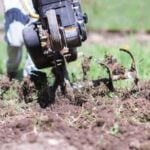Are you looking to improve the health and yield of your vegetable garden? Incorporating beneficial herbs into your garden can be the key to achieving a thriving and productive crop. Companion planting, the practice of growing different plants in close proximity for mutual benefit, has long been recognized as a natural and effective way to support the growth of vegetables.
In this article, we will explore the concept of companion planting and delve into the numerous benefits of incorporating herbs into vegetable gardens. With a focus on beneficial herbs for vegetable gardens, we will discuss how these plants can attract beneficial insects, repel pests, enrich the soil, and improve the flavor of vegetables.
By understanding the role that herbs play in supporting the growth of vegetables, gardeners can make informed decisions about which herbs to incorporate into their gardens. From attracting pollinators and deterring harmful pests to enriching the soil with essential nutrients, herbs offer a range of benefits that can help vegetables thrive. Throughout this article, we will highlight specific herbs such as basil, cilantro, dill, mint, and parsley and their unique benefits in supporting vegetable growth.
In addition to exploring how individual herbs can benefit vegetable gardens, we will also discuss the concept of companion planting – a practice that involves strategically planting herbs alongside vegetables to maximize their mutual benefits. Whether you are new to gardening or looking for innovative ways to enhance the health and yield of your vegetable garden, incorporating beneficial herbs is a simple yet effective strategy that can lead to fruitful results.
Understanding the Role of Herbs
When it comes to gardening, herbs are not only valuable for their culinary uses but also play a crucial role in the overall health and productivity of vegetable gardens. Understanding the various roles that herbs can play in a garden setting is essential for maximizing their benefits.
- Attracting beneficial insects: Certain herbs, such as basil and mint, are known for attracting beneficial insects like bees and parasitic wasps. These insects help pollinate vegetable plants and prey on harmful pests, contributing to a healthier garden ecosystem.
- Repelling pests: Many herbs have natural pest-repelling properties that can help protect vegetables from insect damage. For example, cilantro can deter aphids, while dill is known to repel spider mites and cabbage loopers. By planting these herbs alongside vegetables, gardeners can reduce the need for chemical pesticides.
- Enriching the soil: Herbs like parsley and dill have deep root systems that help break up compacted soil and improve its structure. Additionally, as these herbs decompose, they add organic matter to the soil, enriching it with essential nutrients that support the growth of surrounding vegetables.
- Improving flavor: The flavors of certain vegetables can be enhanced by companion planting them with specific herbs. For instance, basil complements tomatoes beautifully, while mint can add a refreshing twist to peas and carrots. By strategically pairing herbs with compatible vegetables, gardeners can create more flavorful harvests.
Understanding how beneficial herbs for vegetable gardens serve multiple purposes can empower gardeners to create thriving ecosystems that promote plant health and increase overall yield without relying on chemical additives or pesticides. Incorporating these multifaceted plants in your garden promotes sustainability while enhancing the quality of homegrown produce.
Top 5 Beneficial Herbs for Vegetable Gardens
When it comes to creating a thriving vegetable garden, incorporating beneficial herbs can make a significant difference in the health and yield of your crops. Not only do herbs offer natural pest control and soil enrichment, but they can also improve the flavor of your homegrown vegetables. Here are the top 5 beneficial herbs for vegetable gardens and their unique benefits:
1. Basil: This aromatic herb not only adds flavor to your dishes but also attracts bees and other pollinators to your garden. Its strong scent can also help repel pests such as mosquitoes and flies.
2. Cilantro: Known for its fresh and citrusy flavor, cilantro can help deter harmful insects such as aphids and spider mites from infesting your vegetable garden. It is also believed to attract beneficial insects like ladybugs and hoverflies.
3. Dill: Dill is not only a favorite among culinary enthusiasts but also acts as a host plant for swallowtail butterflies. It helps attract these beautiful creatures while repelling pests like cabbage loopers and spider mites from nearby vegetables.
4. Mint: With its strong scent, mint is an excellent natural pest repellent that can deter ants, rodents, and fleas from invading your garden. Be mindful when planting mint, as it can be invasive and should be contained in a separate pot.
5. Parsley: Apart from being a versatile herb used in various recipes, parsley attracts hoverflies that feed on aphids, protecting your vegetables from these destructive pests.
By strategically planting these beneficial herbs alongside your vegetables, you can create a harmonious environment that promotes growth while reducing the need for chemical pesticides. Consider adding these herbs to your vegetable garden to experience their numerous benefits firsthand.
Companion Planting
When it comes to creating a thriving vegetable garden, the concept of companion planting plays a significant role. Companion planting involves strategically placing different plants next to each other to maximize their growth and health. In the case of incorporating herbs into vegetable gardens, this approach can be incredibly beneficial.
By planting certain herbs alongside vegetables, gardeners can attract beneficial insects that help with pollination, repel pests that may harm the vegetables, enrich the soil with essential nutrients, and even improve the flavor of the produce. This not only creates a harmonious and biodiverse environment but also reduces the need for chemical pesticides and promotes overall plant health.
To make the most of companion planting in a vegetable garden setting, consider integrating the following beneficial herbs:
- Basil: Known for repelling mosquitoes and flies while also enhancing the flavor of tomatoes and peppers
- Cilantro: Attracts beneficial insects and deters harmful pests such as aphids and spider mites
- Dill: Attracts predatory wasps that feed on pest insects like caterpillars, making it an ideal companion for cabbage and broccoli
- Mint: Repels common pests like ants and fleas, while also attracting pollinators like bees
- Parsley: Enhances the flavor of neighboring vegetables and attracts hoverflies that prey on aphids
Utilizing these beneficial herbs for vegetable gardens through companion planting not only promotes a healthier garden ecosystem but also contributes to improved yields and flavorful harvests. Understanding which herbs complement specific vegetables and their unique benefits is key to successful companion planting in any vegetable garden.
How to Incorporate Herbs Into Your Garden
When it comes to incorporating beneficial herbs into your vegetable garden, there are a few key tips to keep in mind for successful growth and maximum benefits. From planting to harvesting, these tips will help you make the most of your herb garden alongside your vegetables.
Planting Herbs
When choosing a location for planting your herbs, consider the sunlight and water requirements of each specific herb. Most herbs prefer well-draining soil and plenty of sunlight, so be sure to select a spot in your garden that meets these needs. Consider planting herbs around the perimeter of your vegetable garden or interspersed throughout to take advantage of their benefits.
Caring for Herbs
Once planted, it’s important to properly care for your herbs to ensure their health and vitality. Regular watering is essential, but be mindful not to overwater as this can lead to root rot. Additionally, consider adding a layer of mulch around the base of your herbs to help retain moisture and suppress weed growth.
Harvesting Herbs
Knowing when and how to harvest your herbs is crucial for maintaining their flavor and promoting new growth. Generally, it’s best to harvest herbs in the morning when their essential oils are most potent. Use sharp scissors or pruners to trim the stems just above a leaf node, which will encourage bushier growth. Be sure not to remove more than one-third of the plant at a time to allow for continued growth.
By following these tips for planting, caring for, and harvesting herbs in your vegetable garden setting, you can ensure that you make the most of these beneficial plants while enjoying homegrown flavor and natural pest control.
Natural Pest Control
When it comes to maintaining a healthy and thriving vegetable garden, natural pest control is essential. One effective way to manage pests without the use of chemical pesticides is by incorporating beneficial herbs into the garden. These herbs not only add beauty and fragrance but also serve as natural insect repellents, helping to ward off unwanted pests that can damage crops.
One of the most well-known and widely used beneficial herbs for vegetable gardens is basil. This aromatic herb is not only a favorite in the kitchen but also acts as a natural pest deterrent, particularly against mosquitoes and flies. Planting basil alongside tomatoes can help protect the tomato plants from hornworms and aphids. Additionally, cilantro is another herb that serves as a natural insect repellent, particularly against spider mites and aphids.
Dill is another beneficial herb for natural pest control in vegetable gardens. Its strong fragrance helps repel pests such as aphids, spider mites, and squash bugs. This makes it an excellent companion plant for cucumbers, broccoli, and other susceptible vegetables. By strategically planting dill throughout the garden, gardeners can help protect their crops from destructive insects while avoiding the use of harmful pesticides.
| Beneficial Herb | Pest Repelled |
|---|---|
| Basil | Mosquitoes and flies |
| Cilantro | Spider mites and aphids |
| Dill | Aphids, spider mites, squash bugs |
By incorporating these beneficial herbs for vegetable gardens into your landscape, you can create a natural barrier against common garden pests while promoting a more sustainable gardening approach. Not only do these herbs contribute to healthier plants and increased yields but they also minimize the need for chemical interventions that may be harmful to the environment and human health.
Soil Enrichment
When it comes to vegetable gardening, soil enrichment plays a crucial role in promoting the overall growth and yield of vegetables. Incorporating beneficial herbs into your vegetable garden can significantly contribute to the health and fertility of the soil. These herbs not only add flavor to your dishes but also work wonders in improving the quality of the soil.
One of the key ways in which herbs contribute to soil enrichment is through their ability to fix nitrogen. Herbs such as clover, alfalfa, and vetch have root nodules that contain bacteria capable of converting atmospheric nitrogen into a form that plants can use. When these herbs are incorporated into the soil, they help increase nitrogen levels, which is essential for healthy plant growth.
In addition to fixing nitrogen, certain herbs also help improve soil structure and drainage. Herbs like yarrow and comfrey have deep taproots that effectively break up compacted soil, allowing air, water, and nutrients to penetrate more easily. This enhances the overall fertility of the soil and creates an optimal environment for vegetable growth.
Finally, some beneficial herbs for vegetable gardens act as dynamic accumulators, drawing up nutrients from deeper layers of the soil and depositing them in their leaves. When these leaves are cut or allowed to decompose, they release these nutrients back into the topsoil, making them available for other plants’ uptake. This process helps maintain a healthy nutrient cycle within the garden and contributes to improved plant health and yield.
| Beneficial Herbs | Contribution to Soil Enrichment |
|---|---|
| Clover | Nitrogen fixation |
| Yarrow | Soil structure improvement |
| Comfrey | Nutrient accumulation |
Cooking With Herbs
In conclusion, incorporating beneficial herbs into vegetable gardens can offer a myriad of advantages. From attracting beneficial insects to repelling pests, enriching the soil, and improving the flavor of vegetables, herbs play a crucial role in promoting the overall health and productivity of a garden. Among the top 5 beneficial herbs for vegetable gardens are basil, cilantro, dill, mint, and parsley. Each of these herbs offers unique benefits that can positively impact the growth and yield of vegetables.
Companion planting is a valuable strategy for maximizing the mutual benefits between herbs and vegetables. By planting certain herbs alongside specific vegetables, gardeners can create an ecosystem that supports natural pest control and soil enrichment. This reduces the need for chemical pesticides and promotes the overall health and fertility of the soil.
Furthermore, integrating fresh herbs from the garden into cooking can greatly enhance the flavor of homegrown vegetables and result in delicious herb-infused dishes. Whether it’s adding basil to tomatoes or parsley to potatoes, the culinary possibilities are endless with fresh herbs from your vegetable garden.
This not only elevates the dining experience but also encourages a sustainable approach to using homegrown produce. Overall, cultivating beneficial herbs in your vegetable garden is a rewarding endeavor that offers both practical gardening benefits as well as culinary enjoyment.
Frequently Asked Questions
What Herbs Are Good for Vegetable Gardens?
Several herbs are excellent for vegetable gardens, including basil, mint, rosemary, thyme, and parsley. These herbs not only add flavor to your dishes but also help repel pests and attract beneficial insects to the garden.
What Herbs Should Be Planted With What Vegetables?
When planning your vegetable garden, consider planting basil with tomatoes as they complement each other well. Mint can be paired with cabbage and carrots, while rosemary can be planted alongside beans and peas. Thyme is a good companion for eggplant and potatoes, and parsley blends well with peppers and spinach.
What Vegetables and Herbs Should Not Be Planted Together?
Some vegetables and herbs should not be planted together due to their competing needs or potential for disease spread. For example, it’s best to keep tomatoes away from potatoes due to their susceptibility to similar diseases.
Similarly, beans should not be planted near onions or garlic as they can inhibit each other’s growth. It’s important to research the specific needs of each plant before deciding on their planting locations in the garden.

If you’re looking to get into vegetable gardening, or are just looking for some tips on how to make your current garden better, then you’ve come to the right place! My name is Ethel and I have been gardening for years. In this blog, I’m going to share with you some of my best tips on how to create a successful vegetable garden.





